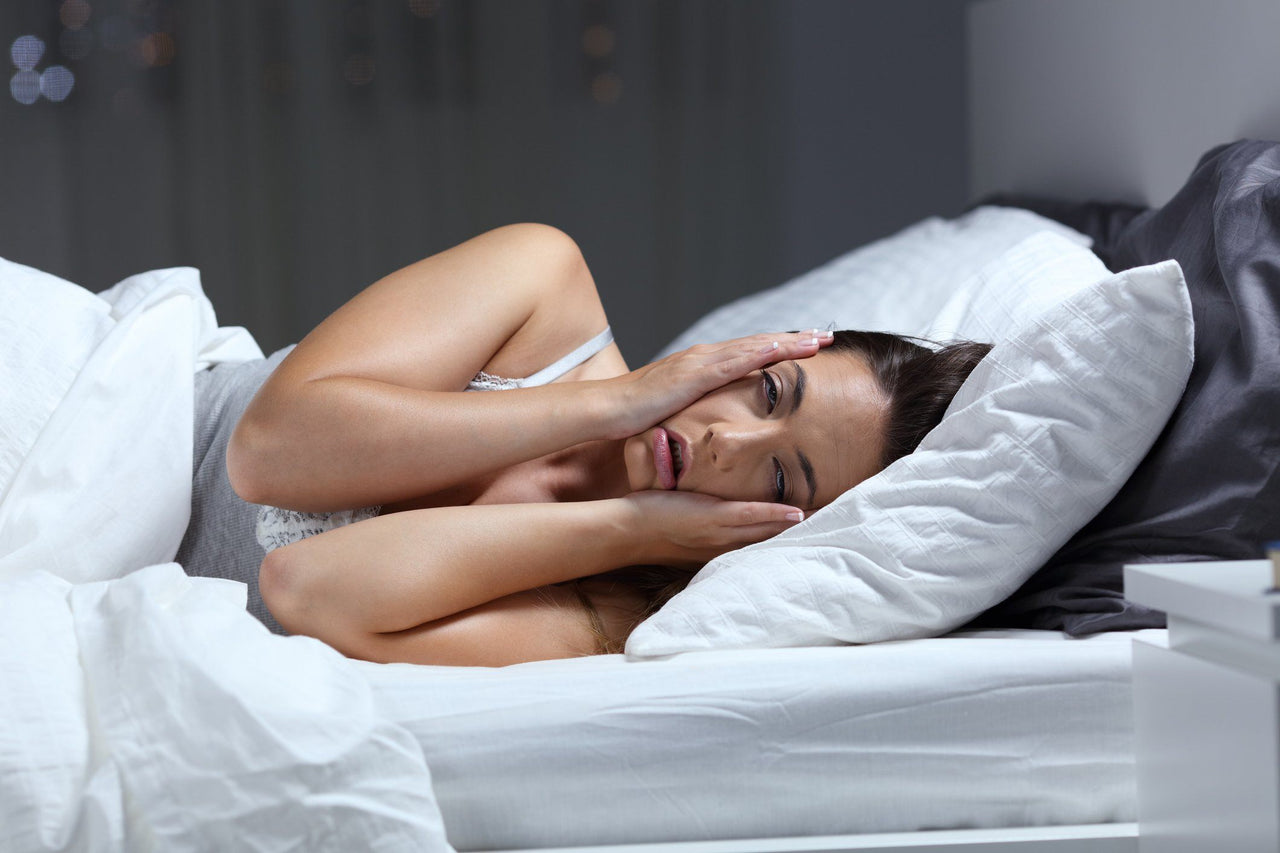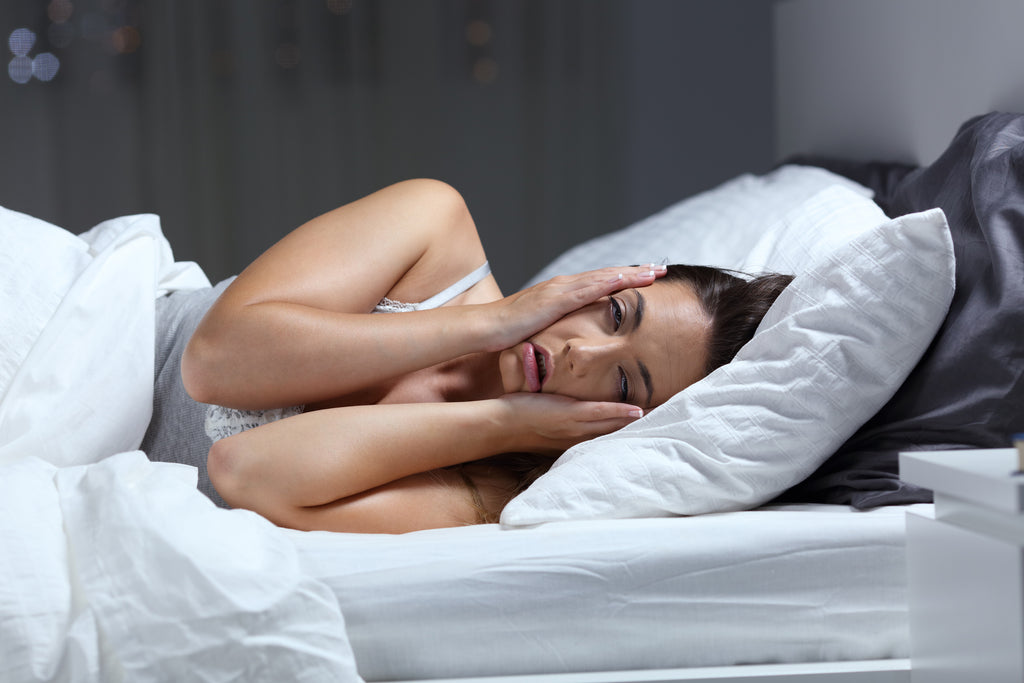Sleep Deprivation: 7 Lifestyle Changes to Get More Sleep


How Sleep Deprivation Undermines Your Health
The Centers for Disease Control and Prevention (CDC) reports that more than one-third of Americans are not getting enough sleep regularly. Sleep deprivation is a medical issue — and not a minor one. According to the CDC, sleep deprivation (sleeping less than seven hours per day) is associated with an increased risk of these chronic conditions:
- obesity
- diabetes
- high blood pressure
- heart disease
- stroke
- frequent mental distress
A recent Forbes article points to the alarming fact that children who fall short by just one hour per night are at increased risk for developing Type II diabetes. The article also points to a "host of studies" that report increased risk of ADHD, cancer, and Alzheimer's in addition to the chronic diseases mentioned in the CDC report.
How Nighttime and Morning Routines Help You Sleep Better
So, sleep is a critical part of good health for each of us—including kids. These recent studies and reports on sleep deprivation remind us of what our bodies always knew. But what is truly effective in ensuring sufficient rest and maintaining or restoring health? Of course, the first steps are simple, intuitive, and natural:
- Make sure your sleeping environment is quiet and restful.
- Keep TV and electronics out of your sleeping space.
- Use your bed only for sleeping.
- Establish nighttime and morning routines.
Let's focus on nighttime and morning routines. For these routines to be effective, you must first create a quiet and restful space for sleep. That includes having the ability to darken the area, removing TVs and electronics from the room, and making sure your mattress and bedding are comfortable and support you correctly.
That said, some things you do before going to bed will make it harder for you to sleep, and others will make it easier. That seems self-evident. But it's surprising how many people don't have a routine that prepares them for a sound night of sleep. And part of your routine includes preparing for a productive day to follow your night. Consider these seven steps to prepare yourself for a restful and restorative night of sleep.
1. Establish a regular time to go to bed and get up
A bedtime routine allows you to set your bio-clock so your body will anticipate and prepare for those times without your conscious intervention. You may notice that once you have established this routine if you get off-schedule for a day or two, it will take a while to readjust—that is, reset your bio-clock.
2. Set aside your electronic devices before bedtime
The National Sleep Foundation reports that the blue light from electronic devices disturbs sleep like this:
Using TVs, tablets, smartphones, laptops, or other electronic devices before bed delays your body's internal clock (a.k.a., your circadian rhythm), suppresses the release of the sleep-inducing hormone melatonin, and makes it more difficult to fall asleep. This is largely due to the short-wavelength, artificial blue light that's emitted by these devices.
If setting aside these devices half an hour ahead of time is all you can realistically manage, then do that. The more time you can leave yourself, though, the better.
3. Rethink what you do in the hours before bed
Read an old-fashioned print book, but use lamp light instead of harsh, overhead lighting. If you prefer to read books electronically, The National Sleep Foundation recommends "an e-ink e-reader (like the Kindle Paperwhite, as opposed to the Kindle Fire)" because it doesn't produce the same kind of blue light as other electronic devices.
Listen to beautiful music. When your climate and weather allow, sit outside under the stars. Visit with family or friends. Most importantly, take time to consider and write down your plan for the next day. It not only makes your day more focused and productive; it gets details off your mind that might otherwise keep you awake.
Another possibility to consider is journaling. Taking 15 minutes at the end of each day to write about your day, what you liked, what you could have done better, or what ideas you had is a great way to de-stress before sleep. For some people, meditation accomplishes the same purpose.
4. Restructure your meals to encourage better sleep
We know so much more about food and its effect on the body than we did even a couple of decades ago. We have the science on food sensitivities, on the negative effects of sugar spikes from commercial and refined products, and of the energy expenditure required from your body when you consume a lot of calories in one sitting.
The S.A.D. (Standard American Diet) contributes to many health problems, including poor sleep. In addition to what you eat, though, it's essential to consider when you eat it, which should be the opposite of what most of us do. Your most substantial and most nourishing meal should be breakfast to fuel your body for an active day. At the very least, it should be your midday meal, as Europeans do.
The evening should be something very light, whole natural foods like an apple and a few walnuts or a little peanut butter. Avoid items that you know may cause a digestive disturbance—and avoid feeling full at bedtime. That means you overate, and that makes your system work too hard at night.
5. Keep an eye on what you drink and when
People vary in their reactions to caffeinated beverages or alcohol, but it best to avoid them closer to bedtime than two hours. Many people can't drink caffeinated beverages afternoon. Remember that fruit juices inject unimpeded (by fiber) sugar into your system, which causes blood sugar spikes. And while it's essential to drink plenty of water each day, try not to drink in the last couple of hours before bed to reduce the times you might have to get up during the night to use the bathroom. Be especially careful about alcohol and caffeine in those hours since they act as diuretics.
6. Make sure you get a workout of some kind each day
Complete your last session at least three hours before your bedtime, though. Recommendations are that "you shouldn't exercise less than three hours before bedtime because exercise has an alerting effect. It also raises your body temperature. This rise leads to a drop in temperature five to six hours later, which makes it easier to sleep at that time."
7. Establish a morning routine
Get up at the same time each morning—again, so that your bio-clock takes over and anticipates that it's time to get up. A few stretching exercises are an excellent way to limber up your body after sleep. Get dressed and complete your hygiene. Reviewing last night's plan for this day is a unique way to stimulate your mind. Maybe even add in 15 minutes of journaling in the morning as well to increase your focus and enhance your creativity. This time you can focus on a keyword or phrase and write just about that, see where it leads.
You can enjoy a morning beverage while you prepare for the day. And be sure to enjoy a healthy breakfast, your most important meal of the day. You can take some steps toward this as well during the hours before bed the evening before if you are on a short morning schedule. At the end of a productive day when you can feel satisfied with what you have accomplished, you will be much better prepared for a restful sleep when you go to bed.
Now, here is one time that you should be prepared to interrupt your routine. We've all had those nights when thoughts are spinning through our head, and we can’t seem to fall asleep. If that happens, and your mind and body don't settle down within 20 minutes, get up. It's counterproductive to lie in bed when you can't sleep since it adds stress. Continue a relaxing activity until you feel ready to sleep.
External Sleep Aids
When most people think of external sleep aids, sleeping pills come to mind—but that should be a last resort when a concentrated program of natural interventions isn't sufficient. There are side effects to sleeping pills, and they may interact problematically with other medications.
That's not to say there aren't other options that are simple and completely natural. It turns out that one of the most effective changes you can make is your mattress and bedding. Nest Bedding is here to assist you in finding the perfect foundation for good sleep. Please contact us to learn more. Our helpful, non-pushy and just darn kind, well-trained humans are ready to work with you.



